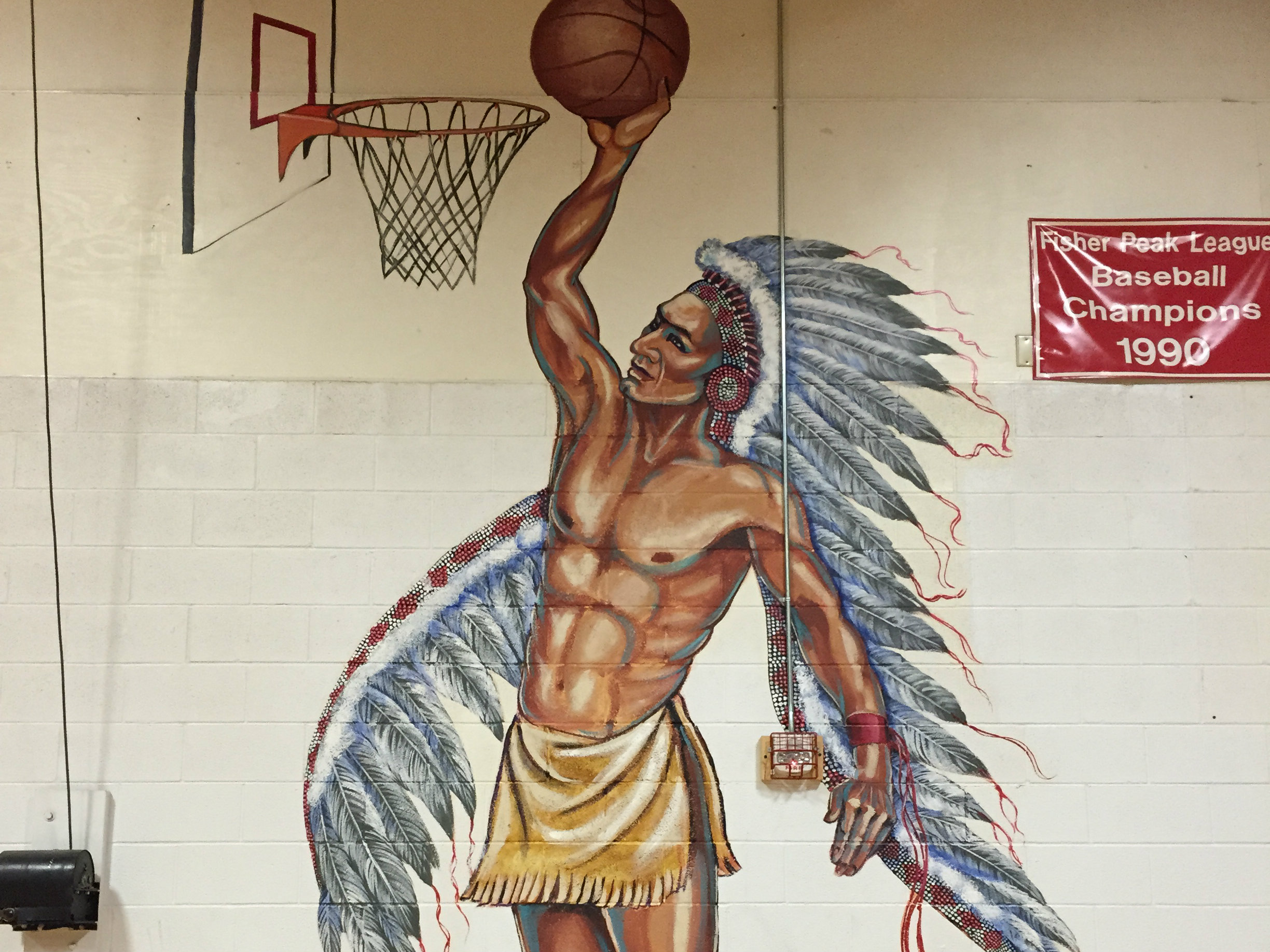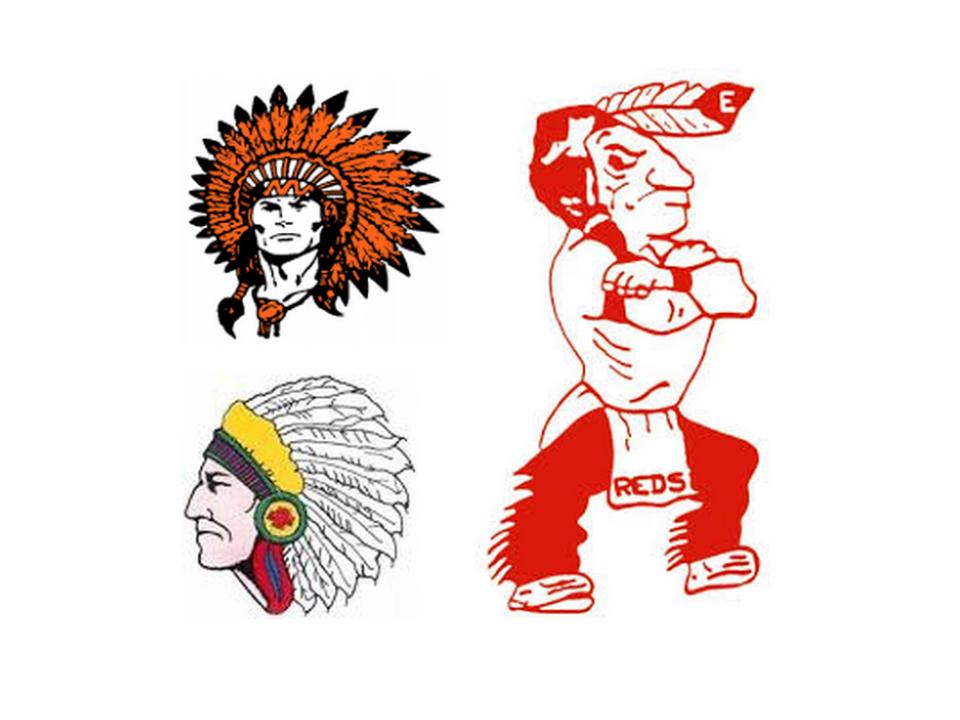
If schools in Colorado with mascots like Indians, chiefs, and braves want to keep using those names, they'll have to receive approval from a panel of American Indians, if Rep. Joe Salazar gets his way. The Democrat from Thornton says in the coming weeks he plans to introduce a bill in the Legislature, which would set up the panel and a review process.
About 40 schools in the state could be affected, Salazar says, including La Veta, a small town in the foothills of Colorado's southern Rockies. The school uses the nickname "Redskins" and controversy over the use of the name there isn't new. In fall 2013, a freshman English class at the high school debated whether the name and use of American Indian images were offensive.
"Most of us were towards changing it, just 'cause, I guess, we wanted to see if we could actually pull it off 'cause nobody thought we could," student Brayden Dobbs said.
Dobbs and his classmates read a commentary that sportscaster Bob Costas had recently delivered during a broadcast of Sunday Night Football. Costas said "Redskins" is an insult and a slur, in a reference to the Washington Redskins NFL team.
"I didn’t even realize how messed up it could be if someone took it that way," Dobbs said recently.
His class took the issue to the district school board, and then a lot of adults in town spoke up about why they didn’t want the name to change. Irene Heikes went to school at La Veta a few decades ago and still lives in town. She was among the residents who wanted to continue with the mascot.
“Four generations have been Redskins," she said. "We were proud to be Redskins."
Her high school classmate, Mitzi Keairns, also lives in La Veta. The two women won cheerleading trophies together.
"We had a lot of cheers that had the Redskin word in it, but never even crossed our minds that could be derogatory," Keairns said.
The two women agree that people in La Veta don't use the term in an offensive way. Heikes said the name is meant to honor Indian traditions.
But now Keairns favors making a change -- though she appears to be a minority in town. The school board held a packed community meeting in the gym last year. Thirty or so people stood up to speak and only three supported choosing a new school mascot, according to several people in attendance.
Later, the school board voted, and by a 3-2 count, decided to keep the name. Board member Cindy Campbell was with the majority.
"I voted to keep the mascot, and I felt really, really bad," Campbell said.
She said she feared retribution if she voted for a change. Campbell also wanted to represent the community's wishes and said the mascot issue distracted the board from focusing on academics.
Campbell and her fellow board members would support a mascot change if the school is forced to do so by the government. That could happen if Salazar's bill passes.
"This bill is about empowering the American Indian community and getting people to speak with them and getting the respect that they deserve," he said. "American Indians should have the right to say how they should be honored, if they want to be honored at all."
Citing several studies, Salazar added that having stereotypical racial imagery or names in schools can hurt American Indian students psychologically.
A similar effort to force a review of such mascots failed in 2010 in Colorado. Since then, the national debate over the use of American Indians as mascots has only grown, fueled by the controversy over the NFL’s Redskins.

Across the country, more than 2,000 high schools, colleges, pro and semi-pro teams have mascots like Indians, chiefs, braves, or savages, according to the website FiveThirtyEight.
Over the past decade, seven states have considered proposals similar to the one expected in Colorado, including Wisconsin, according to the National Conference of State Legislators. In 2010, lawmakers there required schools to put their mascots to an offensiveness test. Then, a year ago, Gov. Scott Walker signed a new law, weakening the requirement.
"If I could personally take care of this, I'd go and change these mascots and these nicknames because I have great empathy for the concern they have," Walker said. "By the same token, I just think from a free speech standpoint… that free speech shouldn't be limited to just speech we agree with."
By the time Walker signed the bill, a lot of Wisconsin schools had already scrubbed old Indian logos from gym floors and removed the names from uniforms, the Associated Press reported. Administrators had to plan ahead, because of tight budgets.
That’s true in La Veta, too. The high school recently bought new uniforms for some teams, and they don't have the word "Redskins," an acknowledgement by administrators that change seems inevitable.
Sophomore Brayden Dobbs, whose class started the recent debate in La Veta, agrees.
"We weren’t trying to, you know, mess up tradition or anything," he said. "We just wanted to start the conversation because… soon enough everyone’s going to have to change their mascots from the Redskins to whatever else."
Lawmakers in Colorado may decide how soon that’ll be, if they support Salazar's bill.








